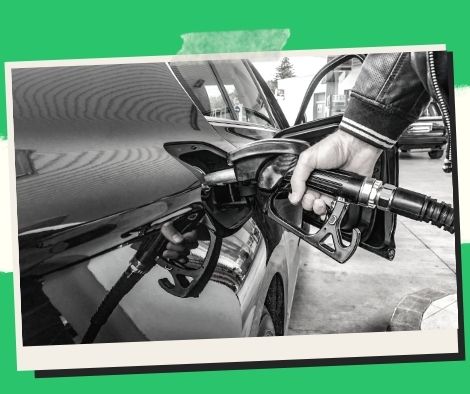
Oil prices are expected to rise further until early 2022, according to the DOE’s chief economist.
Prices of petroleum products are projected to rise further until early next year, according to Department of Energy Secretary Alfonso Cusi, due to the present global oil supply crisis.
Cusi, in an interview with ABS-CBN News Channel on October 20, 2021, ascribed the recent increase in oil prices to global market trends.
Oil producers and exporters are only supplying 100 million barrels per day (bpd) while demand is at 103 million bpd, resulting in a global supply gap of roughly 3 million bpd.
Despite increased demand, the Organization of Petroleum Exporting Countries and its Allies (OPEC+) is adhering to its goal to modestly boost output by 400,000 bpd through April 2022, as several countries recover from the pandemic’s effects.
Cusi stated that, despite the Philippines’ ability to obtain the required supply of 435,000 bpd, oil prices are still determined by global market trading.
Diesel prices have risen by PHP8.65 in the last two months, gasoline by PHP7.20, and kerosene by PHP8.05.
However, the DOE chief hopes that with all of the government’s actions, price spikes in the local market would be regulated.
Not a fare hike, but a subsidy
Cusi stated he is personally opposed to a fare hike, which is being proposed by public utility vehicle (PUV) drivers in response to rising fuel costs.
“We (DOE) were against it (the fare hike). Let us find a solution, similar to the Pantawid Pasada and all other subsidies for the public sector,” he remarked.
Cusi said the DOE has asked lawmakers to revise the oil deregulation statute in light of the possibility that major oil price increases would occur again in the future.
He said, “to give DOE more authority in circumstances like these and to reclaim (the) government’s participation in oil trading.”
Legislative policies, according to the energy secretary, are needed to provide DOE more authority to interfere when oil prices rise dramatically for an extended period of time.
When global oil prices crossed the USD80 barrier, he declared the Bayanihan Law authorized the suspension of oil excise tax collection. This legislation, however, has already passed its expiration date.
“What we want in the statute is the ability to suspend it (the excise tax) in certain atypical circumstances,” Cusi added. “Our options are limited in a circumstance like this.”
He estimates that if the excise duty on oil is suspended, pump prices will be cut by PHP8 to PHP10 per liter.
“To achieve that, we need a law,” Cusi said, adding that an executive order from the Palace alone would not be enough to stop the collection of excise taxes on petroleum goods.
Save/Share this story with QR CODE
Disclaimer
This article is for informational purposes only and does not constitute endorsement of any specific technologies or methodologies and financial advice or endorsement of any specific products or services.
📩 Need to get in touch?
Feel free to Email Us for comments, suggestions, reviews, or anything else.
We appreciate your reading. 😊Simple Ways To Say Thanks & Support Us:
1.) ❤️GIVE A TIP. Send a small donation thru Paypal😊❤️
Your DONATION will be used to fund and maintain NEXTGENDAY.com
Subscribers in the Philippines can make donations to mobile number 0917 906 3081, thru GCash.
3.) 🛒 BUY or SIGN UP to our AFFILIATE PARTNERS.
4.) 👍 Give this news article a THUMBS UP, and Leave a Comment (at Least Five Words).
AFFILIATE PARTNERS

World Class Nutritional Supplements - Buy Highest Quality Products, Purest Most Healthy Ingredients, Direct to your Door! Up to 90% OFF.
Join LiveGood Today - A company created to satisfy the world's most demanding leaders and entrepreneurs, with the best compensation plan today.



 Business Technology, Finance Technology & Information Technology
Business Technology, Finance Technology & Information Technology





